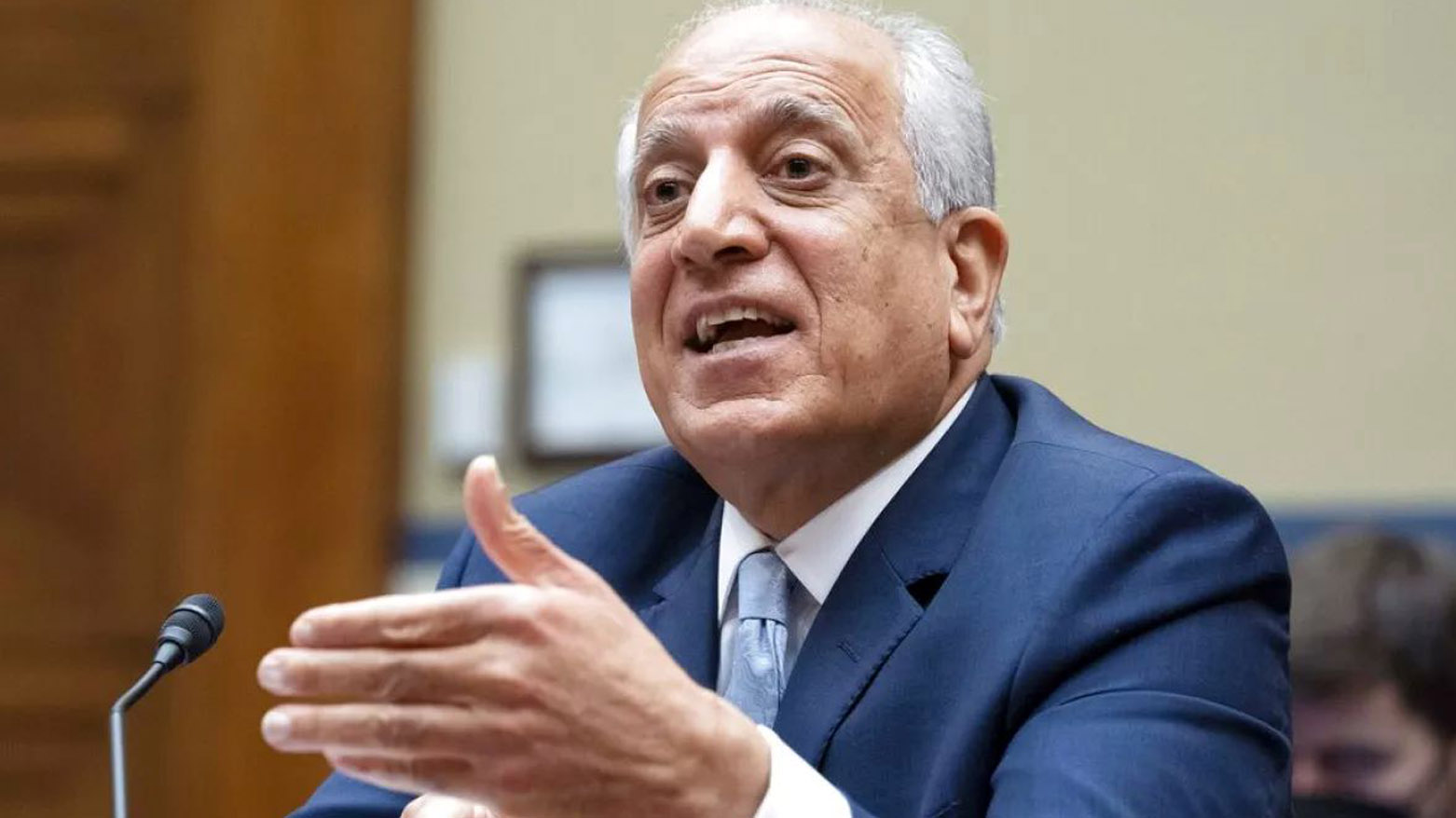Zalmay Khalilzad Warns Iran: Underground Missile Bases Won't Ensure Survival in War
The former U.S. diplomat cautioned against the dangers of war, urging Iran to opt for negotiation rather than escalating tensions in the face of U.S. deterrence strategies.

By Dler Mohammed
ERBIL (Kurdistan24) - Tehran has released footage showcasing a vast underground missile facility, a clear message aimed at the United States and its allies. Former U.S. diplomat Zalmay Khalilzad warned that Iran’s strategy is an attempt to deter any military action by demonstrating its capability to absorb an initial strike and retaliate with force. However, he questioned Iran’s ability to maintain effective command and control in the event of conflict, emphasizing that U.S. military planners are undoubtedly evaluating such scenarios.
Tehran has released a video of a large underground missile base. The intention clearly is to convince @realDonaldTrump that a war with Iran would be risky because it has the ability to survive an initial attack and still to hit targets near and far.
— Zalmay Khalilzad (@realZalmayMK) March 29, 2025
But can Iran's command and…
Iran’s unveiling of its underground missile arsenal is part of a broader strategy to strengthen its deterrence posture amid escalating tensions with Washington. The Trump administration has maintained a hardline stance against Iran’s nuclear ambitions and its ballistic missile program, imposing crippling economic sanctions and withdrawing from the 2015 Joint Comprehensive Plan of Action (JCPOA), commonly known as the Iran nuclear deal.
The administration has repeatedly warned Tehran against advancing its missile capabilities, citing violations of UN Security Council resolutions and the potential threat to regional stability.
Khalilzad’s statement aligns with the Trump administration’s broader position that Iran’s aggressive military posturing is a desperate attempt to gain leverage. Since taking office, President Trump has pursued a "maximum pressure" campaign designed to bring Iran back to the negotiating table under terms that would curb not only its nuclear program but also its ballistic missile development and regional interventions.
Unlike the previous administration, which sought diplomatic engagement through the JCPOA, Trump’s policy emphasizes deterrence through economic and military pressure.
Iran’s missile program has long been a source of concern for the U.S. and its allies, particularly given its advancements in medium- and long-range ballistic missiles capable of reaching Israel and U.S. military bases in the region.
The underground missile bases, often referred to as Iran’s "missile cities," are intended to assure survival and operational capability in the face of airstrikes. However, military experts argue that despite these defensive measures, Iran’s ability to coordinate a large-scale retaliation post-attack remains uncertain.
Iran unveils new underground missile city!
— Kurdistan 24 English (@K24English) March 26, 2025
BRICS' official X account has shared a video showcasing Iran's latest military development. As a full BRICS member, Iran's move raises key questions: What message is Tehran sending? And to whom?
Share your thoughts in the comments! pic.twitter.com/uUqczruVIM
Khalilzad’s warning underscores the risks Iran faces should it overestimate its military resilience. "I would advise Iran not to gamble on war," he stated, urging Tehran to consider negotiations as the more prudent path, reiterating President Trump’s openness to dialogue under stricter terms.
The Trump administration’s strategic calculus has been clear: deter Iran from advancing its nuclear and missile programs while offering diplomacy as an alternative to escalation. With U.S. military presence in the region and an unwavering commitment to regional security, any Iranian miscalculation could prove catastrophic. As tensions remain high, the ball is in Tehran’s court—whether to de-escalate through talks or continue its defiance at its own peril.